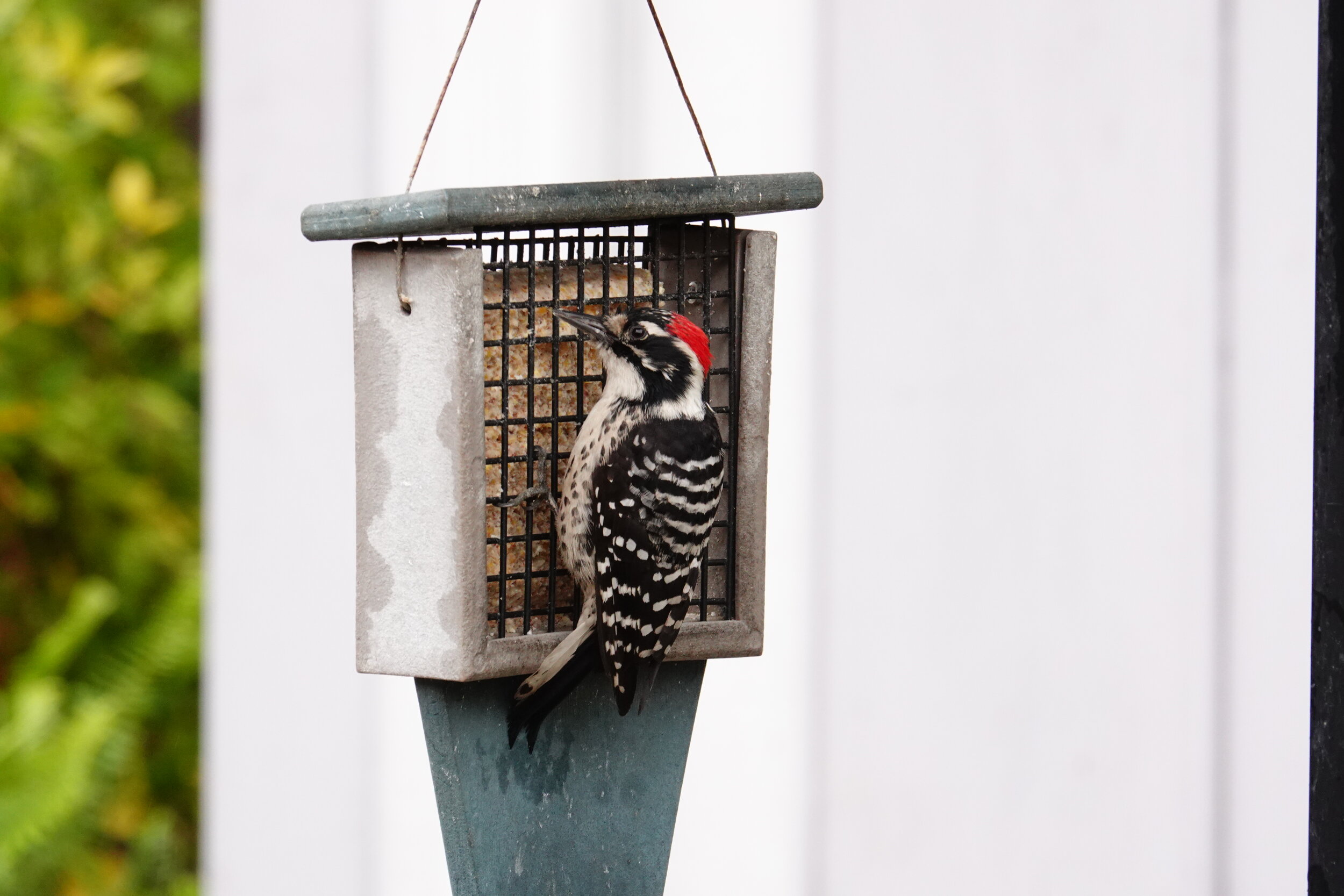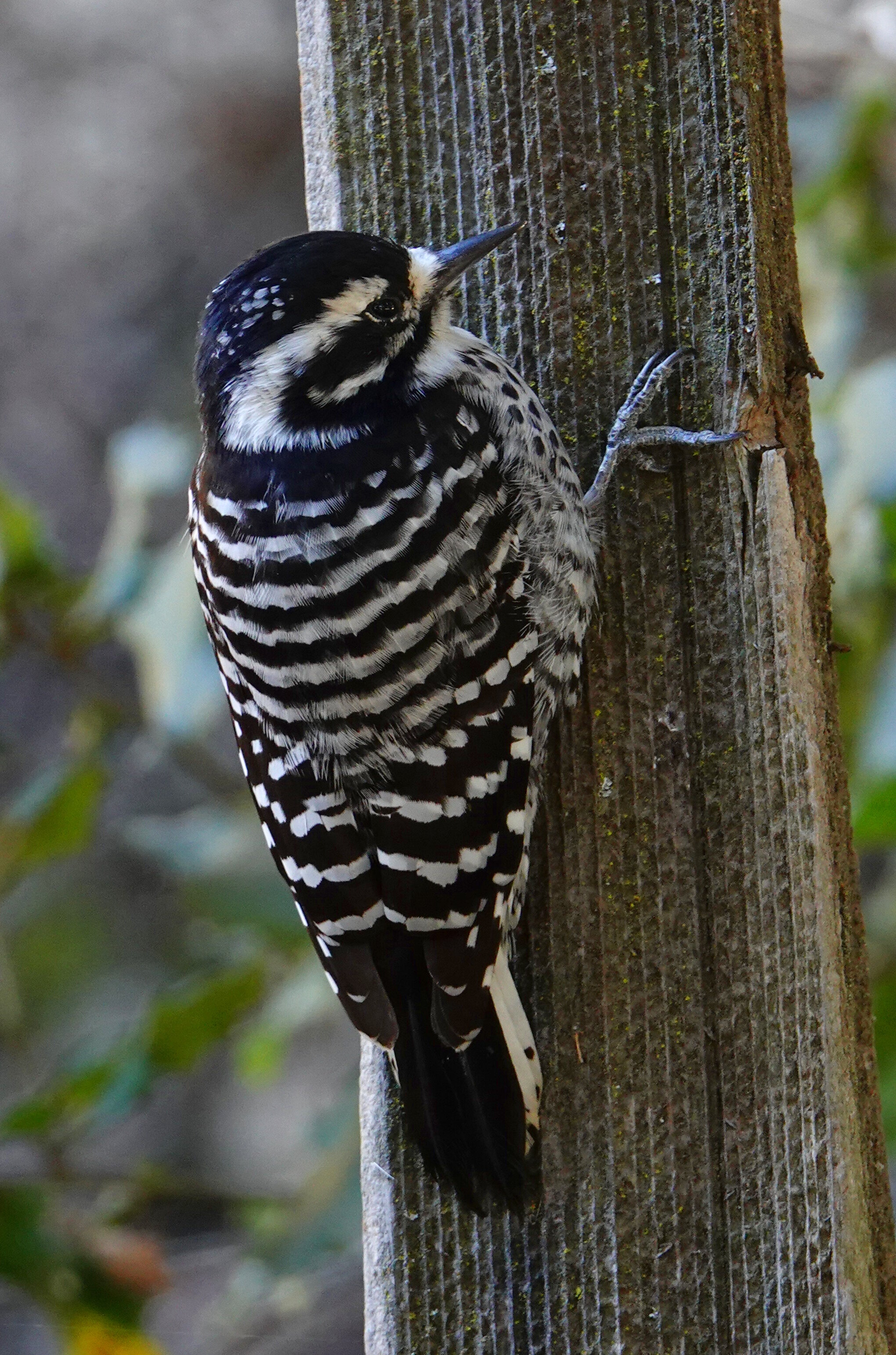Nuttall’s Woodpecker
by Dave Zittin
Eight species of woodpeckers occur in Santa Clara County. In suburban areas, the Nuttall's Woodpecker is the most common backyard visitor.
Male Nuttall’s Woodpecker. Note the white barring pattern on an otherwise black back. Photo by Tom Grey
Attracting Nuttall's Woodpecker to Backyards
Most woodpeckers are omnivorous. The Nuttall's Woodpecker's diet is composed mostly of insects, but it will eat seeds, berries and other fruits. This woodpecker uses its feet and stiff tail feathers to prop itself while feeding. From my experience a suet feeder with a “paddle” that extends well below the suet block so that the bird can use its tail feathers for support is best. I have had luck attracting woodpeckers using suet containing dried insects. During the summer, Nuttall's Woodpecker is a common visitor and I will see one on the feeder several times each day. Often this species will “announce” its arrival with a loud metallic rattle call.
Male Nuttall’s Woodpecker at a suet feeder with a “paddle”. The paddle extends well below the suet block so that the woodpecker can use its tail feathers to support itself while feeding. Photo by Dave Zittin.
Descriptions
Nuttall's Woodpecker can be distinguished from our other local woodpeckers by a white barring pattern on an otherwise black back. The mature male has a white and black streaked forehead and a large red patch that covers the entire rear of the head. The top of the female's head is black. Immature birds resemble adults except that both sexes can show red on their crowns, but it does not extend down the back of the head as it does in the adult male (see the banner photo on the top of this page.)
Female Nuttall’s Woodpecker. She lacks the red crown of the male. Photo by Dave Zittin.
Distribution
Nuttall's Woodpecker is truly a California species and is found almost exclusively in this state with a small population in Northwest Baja California. This species prefers oak woodlands and riparian areas, but it occurs wherever there are trees and has done well in populated areas.
Similar Species
There are two other species that beginning birders might mistake for Nuttall's Woodpecker, the Hairy Woodpecker and Downy Woodpecker. Both of these species have a prominent white streak in the upper center of their backs instead of a black back with white stripes that is seen on the Nuttall's Woodpecker.
Downy Woodpecker. Note the lack of barring on its back and its tiny bill. Photo by Peter Hart.
Female Hairy Woodpecker. Note the prominent white streak on its back. Photo by Peter Hart.
Explore
In the “sounds” section in the references below, be sure to listen to the characteristic metallic “rattle” call of Nuttall's Woodpecker.
All About Birds: Nuttall’s Woodpecker
More Backyard Bird Information
View more common Santa Clara County Backyard Birds
Visit our Backyard Birding page
Read our Notes and Tips from a Backyard Birder series
Tell us what you’re seeing in your yard! Send your notes, photos, and sound clips to backyardbirds@scvas.org. We’ll feature your submittals on our website.
Banner Photo Credit: Immature Nuttall’s Woodpecker by Brooke Miller






